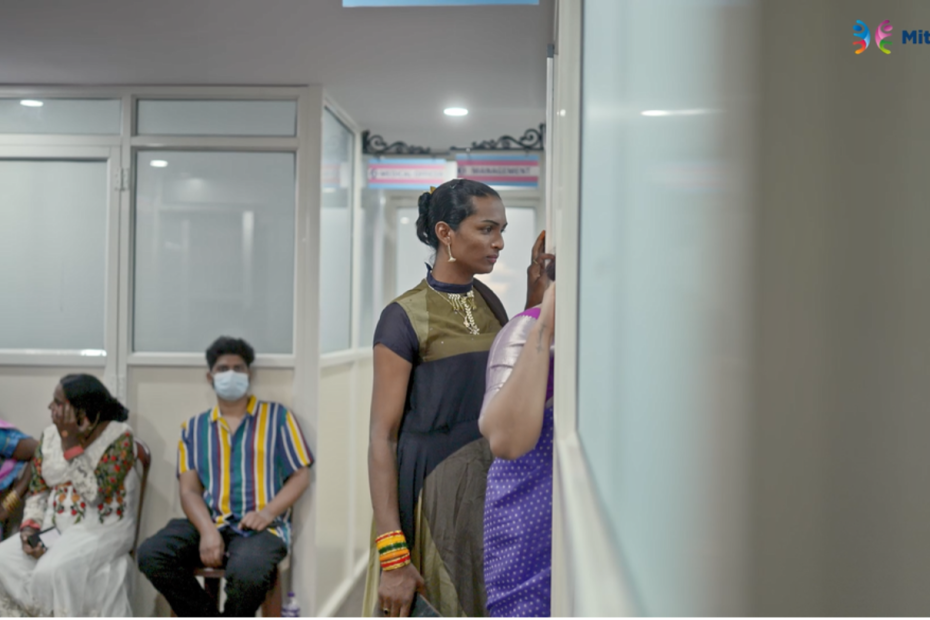This year, the U.S. President's Emergency Plan for AIDS Relief (PEPFAR) marks its 20th anniversary as a global effort that has invested $100 billion into the HIV/AIDS response and saved more than 25 million lives.
In India, the impact is felt by millions who access HIV prevention, testing, life-saving treatment and care.
The third largest HIV/AIDS epidemic in the world, more than 2.4 million people in India are living with HIV. Still, about 900,000 people are not linked to treatment, and more than half a million people do not know they are living with HIV.
As a PEPFAR-funded USAID project implemented through the Johns Hopkins University School of Medicine, ACCELERATE is closing gaps in the response with innovative models that bring HIV services to the most vulnerable populations.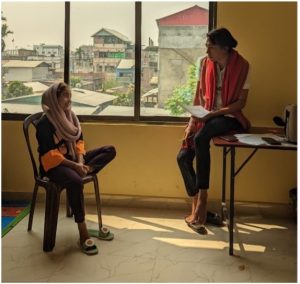
For instance, a teenager living with HIV in Imphal, Manipur can now visit a local Adolescent Friendly Health Center to participate in sports, music and life-skills programs, while also accessing counseling, social services and peer support on their HIV journey.
In Maharashtra and Telangana, a transgender person can now find quality care in a stigma-free environment at a Mitr Clinic (”Mitr” is Hindi for friend). For and by the trans community, the clinics provide HIV services, along with general health services, non-communicable diseases, laser therapy, cosmetology and gender-affirming care.
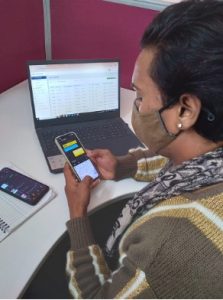 On the web, thousands of people are visiting SafeZindagi.in for safe and confidential HIV services. They might use WhatsApp to connect with a Safe Zindagi virtual counselor, start life-saving treatment or HIV prevention medication (PrEP) or order an HIV self-test kit to their doorstep.
On the web, thousands of people are visiting SafeZindagi.in for safe and confidential HIV services. They might use WhatsApp to connect with a Safe Zindagi virtual counselor, start life-saving treatment or HIV prevention medication (PrEP) or order an HIV self-test kit to their doorstep.
“The populations vulnerable to HIV have been constantly evolving over the past 27 years in India,” said Sunil Solomon, professor in the Division of Infectious Diseases.
“For example, now we are seeing a surge of people seeking partners online who appear to have poor access to services and high HIV burden as our SafeZindagi.in platform discovered. We need to continually monitor our data and be nimble enough to adapt to address the emerging populations with high-risk practices to ensure that all people vulnerable to HIV are being reached through our programming.”
As these models have emerged through the project in the past three years, the team has also worked with state and national governments to scale up and sustain the responses.
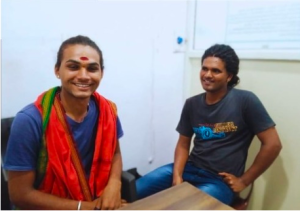 In partnership with government treatment centers and community organizations, the Adolescent Friendly Health Center model has been replicated in five additional locations. The project has also established four stand-alone Mitr Clinics and Mitr help desks are opening in government hospitals.
In partnership with government treatment centers and community organizations, the Adolescent Friendly Health Center model has been replicated in five additional locations. The project has also established four stand-alone Mitr Clinics and Mitr help desks are opening in government hospitals.
Venky and Chinnum (pictured to the right) learned about the Mitr Clinics from friends in their community and visited a clinic to seek laser therapy services in a safe, friendly space. They are two of the approximately 3,000 people who are now accessing care through the clinics.
Meanwhile, public and private health providers are linking patients to Safe Zindagi’s low-cost services, offering an avenue to those who may not otherwise visit a facility due to stigma, lack of transportation, or other barriers.
These efforts are informing national policy around guidelines for Pre-Exposure Prophylaxis (PrEP), engaging with HIV at-risk Populations in virtual spaces and transgender health.
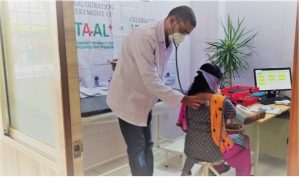 In addition, the project continues to reach vulnerable groups including female sex workers, people who inject drugs, those who use drugs as part of their sex life and young adults.
In addition, the project continues to reach vulnerable groups including female sex workers, people who inject drugs, those who use drugs as part of their sex life and young adults.
Along with PEPFAR’s 20th anniversary, this year also marks the 17th anniversary of TAAL+, one of India’s first pharmacies and clinics for people living with HIV.
Through the vision of the Network of Maharashtra People Living with HIV, TAAL+ is transforming access to HIV services through a one-stop shop model. Since 2020, the network and ACCELERATE have collaborated to improve access to treatment, viral load testing, as well as support for non-communicable diseases, COVID-19 vaccinations and other social services. Moving forward, the project aims to establish TAAL+ as a self-sustaining, comprehensive health clinic.
Whether it’s TAAL+, Mitr Clinics, Safe Zindagi, Adolescent Friendly Health Centers or other novel approaches, a person-centered HIV response requires transformative partnerships with communities, government agencies, the private sector and other agents of change. Through evidence-based approaches to HIV prevention, testing, treatment and care—as well as services that go beyond HIV– PEPFAR’s support in India continues to enable catalytic progress toward the end of AIDS.
ACCELERATE, a five-year USAID & PEPFAR supported HIV program, under the leadership of the National AIDS Control Organization & State AIDS Prevention and Control Societies provides assistance to the national, state and district HIV/AIDS programs to deliver comprehensive HIV prevention and treatment services to vulnerable populations including people living with HIV, key populations and their partners, as well as orphans and vulnerable children. The effort is led by Johns Hopkins University and partners YR Gaitonde Centre for AIDS Research and Education (YRG Care) The Fenway Institute and Blue Lotus Advisory.
